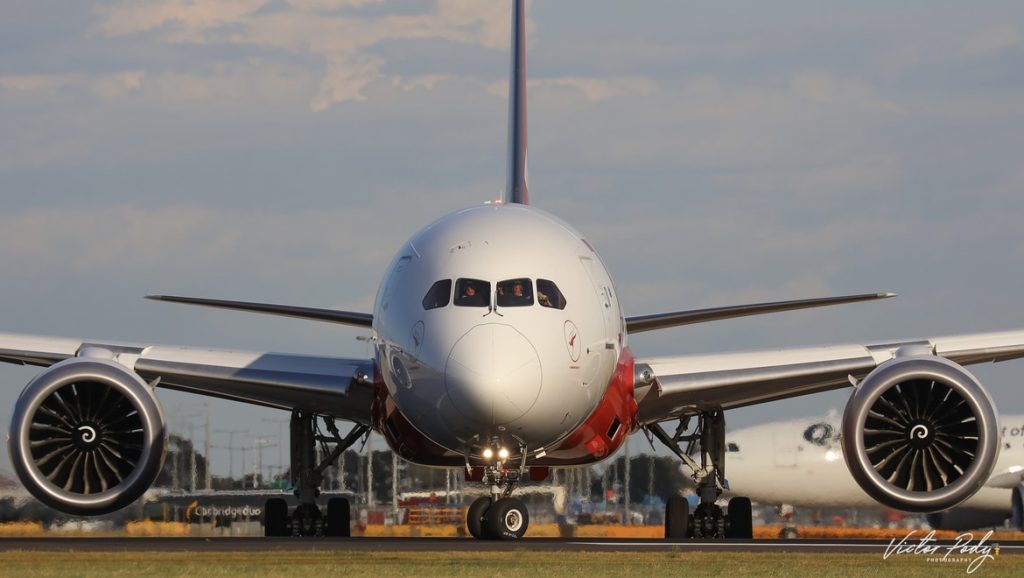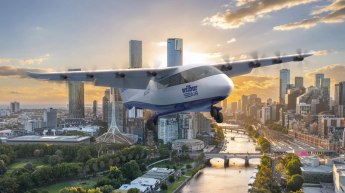
Qantas has revealed a new retention and reward program for employees that remain with the company until August 2023.
The airline has said that all non-executive employees – around 20,000 workers – will be eligible to receive 1,000 rights, which will be converted to Qantas shares in August 2023.
There are a number of caveats to the program, including that staff must remain with the company until August 2023 to receive their shares, and Qantas must be able to “deliver on our recovery program”.
Qantas’ recovery program involves permanent cost-cutting measures that aim to shave around $1 billion off the airline’s annual costs.
It comes amid ongoing turbulence between Qantas and parts of its workforce, after it attempted to terminate its enterprise agreement with its international cabin crew, and after the Federal Court ruled its decision to outsource 2,000 ground service workers was in violation of the Fair Work Act.
Qantas CEO Alan Joyce said that at today’s share price, the retention scheme could see staff take home over $5,000 each.
“But it could be worth a lot more by the time it vests, given our focus on growing long term shareholder value and given our recovery program,” he said.
Managers and senior executives are also eligible for share rights, based on the same performance and service conditions as above, as well as three years of no annual bonuses and two years of wage freezes.
“It has been a tough few years and retention is an issue among our managers and executives,” Joyce said.
“As our chairman said at last year’s AGM – it was not a foregone conclusion that Qantas would survive this pandemic. The hard work of our people has been a key factor and we need to retain their skills and experience into the future.
“We’re still having difficult conversations about changes we need to make in some parts of the business. But we want everyone who contributes to our recovery to share in the success when the time is right.”
The program hopes to foster loyalty in its remaining workforce, which has slimmed down by over 6,000 workers since the beginning of the pandemic, after a turbulent 18 months of staff relations.
Most recently, Qantas applied to the Fair Work Commission to terminate its enterprise agreement with its international cabin crew.
It came after international cabin crew overwhelmingly rejected the airline’s proposed EBA deal.
The airline claimed the decision to terminate the current EBA was made due to “unworkable” rostering conditions coded into the existing enterprise agreement, which means some cabin crew are only capable of operating on certain aircraft.
The Flight Attendant’s Association of Australia later criticised the airline for making the bold decision, without first attempting mediation or conciliation with Fair Work, and said the rostering conditions were not the main issue for cabin crew, but rather the impact the new deal would have on staff’s work-life balance.
Qantas also currently remains in a court battle with the Transport Workers’ Union, over its decision to outsource 2,000 ground handlers, a move that was later found by the Federal Court to have been done so in partial violation of the Fair Work Act.
The two parties are due back in court on Thursday, after a judge ruled that the reinstatement of the 2,000 workers was not an appropriate solution, however alternate compensation will soon be determined.
The airline has consistently stated that its decision to outsource these workers and dismantle the Qantas Ground Services unit of its business formed part of its long-term cost-saving plans to cull $1 billion off its annual operating costs.
The airline stated on Thursday that it has been successful in shaving around $400 million in annual costs out of its domestic operations, and a further $300 million off its international unit.
“These savings are a combination of us being more efficient, taking costs out of our head office and restructuring our operations,” Joyce said.
“These are annual saving figures based on pre-COVID activity levels and will total at least $1 billion by the end of FY23.”
















Jack
says:Well that’s a insult to the staff.